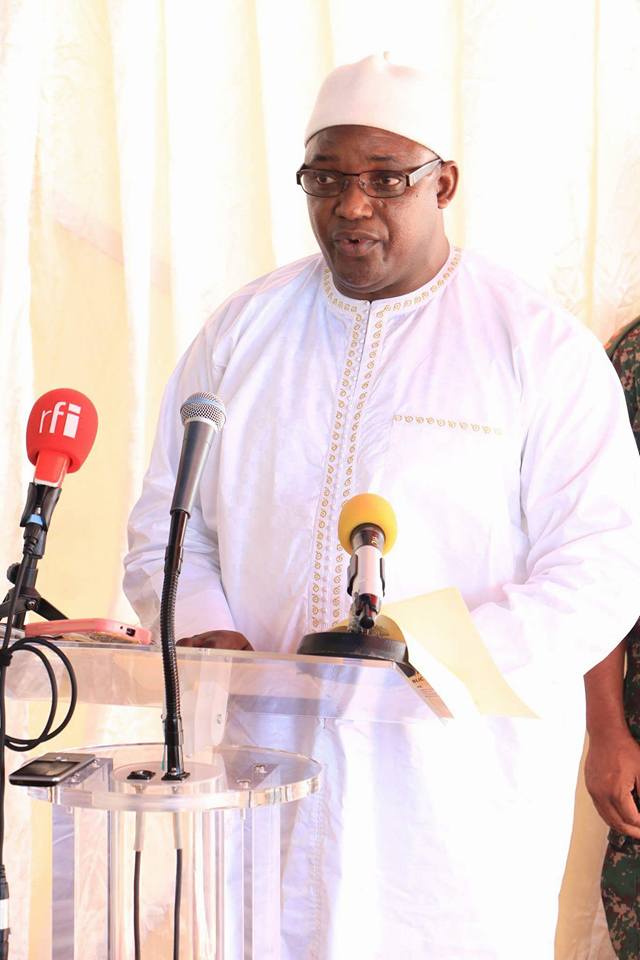
The 2021 presidential elections have finally come and gone. The fever-pitched atmosphere that characterized and inundated the polity pre-election has been doused by the seemingly credible, free, and fair election of presidential Adama Barrow.
As a result, the pre-election doomsday prophesies and innuendoes that the presidential election would make or mar the country’s unity has come to pass.
The commendable performance of the umpire of the elections under the stewardship of Alhagie Alieu Momar Njie and Mr. Sambujang Njie, CEO of the Independent Electoral Commission (IEC), should be recognized and must be commended for conducting a credible, free and fair, inclusive, and transparent election process.
President-elect Adama Barrow secured a second term as President in the biggest test of the Gambia’s emergent democracy since dictator Yahya Jammeh’s 22-year rule ended. President Barrow, however, garnered 53.2% of the votes.
At the same time, his nearest rival emeritus lawyer Abubacarr Ousainou Darboe leader of the United Democratic Party (UDP), obtained 27.7%. As a result, Alhagie Alieu Momarr Njai, chairman of the Independent Electoral (IEC) Commission, declared incumbent president Adama Barrow in the December 4, 2021, presidential elections.
This is the first presidential election in 27 years, not to include former president Yahya Jammeh, who has remained in exile in Equatorial Guinea since being defeated by President Adama Barrow in a 2016 presidential election.
Overall, the 2021 presidential election “conforms to national and international standards,” the African Union’s observer mission said in a statement.
In addition, a coalition of civil society organisations in the Gambia and international election observers declared the election “free and fair” despite a rejection of former Vice President Abubakar Ousainou Darboe and, leader of the United Democratic Party (UDP), and Mr. Mama Kandeh, opposition leader of the Gambia Democratic Congress (GDC).
Likewise, the conduct of Gambia’s political gladiators (Honourable Halifa Sallah of the People’s Democratic Organization for Independence and Socialism (PDOIS), doyen, and dean of Gambian politics other presidential candidates conceded to the defeat and accepted the election results as the will of the Gambian people) must also be acclaimed for their democratic and patriotic stance.
However, more significantly, the gesture of Mr. Abdoulie Jammeh, Dr. Isamila Ceesay, Ahmed Mai Fatty, and other politicians’ symbolic acceptance of the outcome of the results and phone calls to concede defeat and congratulate President-elect Adama Barrow even before and after the final results were officially announced should highly be extolled and would go down well in the annals of history.
Never in the history of our burgeoning democracy has such magnanimity and statesmanship been exhibited by politicians aspiring for the land’s highest office.
The gesture, without a doubt, forestalled any hatched plans by evil doers to scuttle the latter stages of the elections. This is a milestone that is indelible in the history of the Gambia.
The 2021 presidential election is the first election to be conducted since the defeat of former president Yahya Jammeh in 2016 by President Adama Barrow that saw an opposition candidate winning the presidential elections, and the results allowed to stand.
This is also a feat worthy of acclamation, good for the Gambia’s political development. Every discerning Gambian should be proud of. The wind of change has suddenly filled the atmosphere. You can almost touch it in the length and breadth of the Gambia.
You can feel it in the Gambian Diaspora community parts, and you can sense it. Everywhere you go, Gambians are looking forward to a government of the people, by the people, and for the people.
Anything short of this, the power and voices of the people through the ballot, would surely be put to good use once again in the coming general elections in April 2022.
However, while the majority of Gambians are still basking in the euphoria of President Adama Barrow’s victory, discerning Gambians are concerned about the “opposition” in Gambian politics.
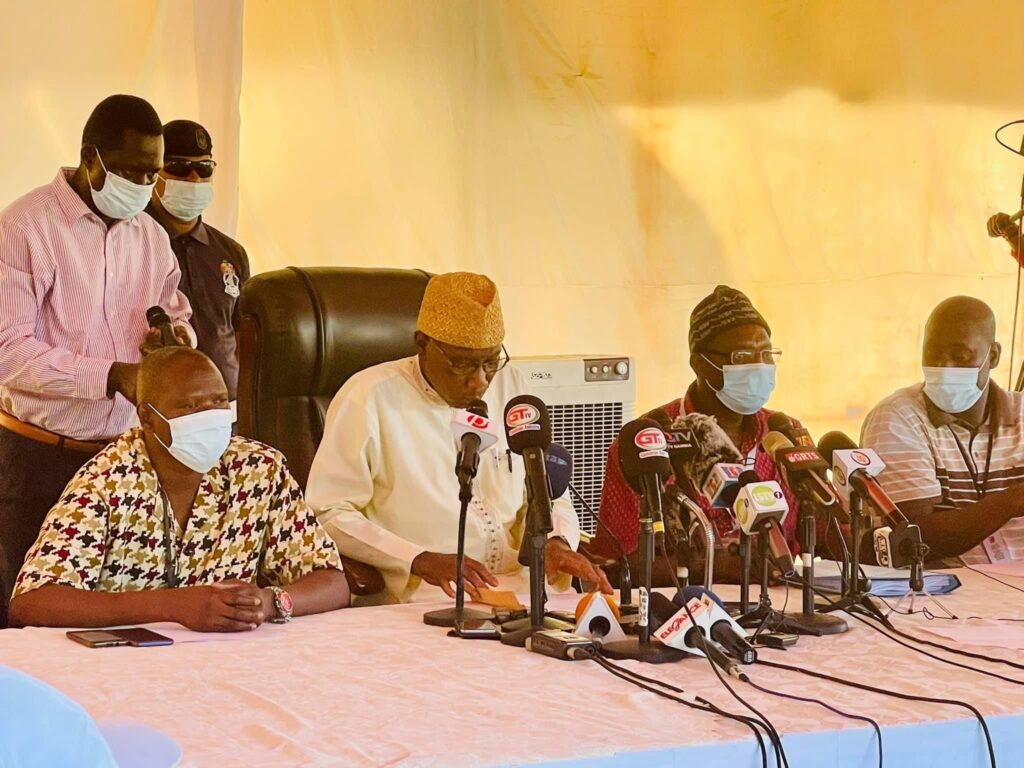
Is there an opposition in our nascent political development? Opposition in politics means “the major political party opposed to the party in office and prepared to replace it if elected.”
President Barrow’s National People’s Party (NPP) has emerged as the dominant political party in 2021. From developments in the just concluded presidential elections, it will be a significant political party in the Gambia.
A salient fact here is that majority of the supporters of the National People’s Party (NPP) were mainly from other dominant opposition members, mainly from the mighty United Democratic Party( UDP), the former ruling Alliance for Patriotic Re-orientation and Construction (APRC), the Gambia Democratic Congress (GDC) and other peripheral parties.
For instance, most of the senior executive members of the National People’s Party (NPP) were primarily from other opposition party’s as senior members mentioned above.
The second term of President Barrow has not officially taken overpower, and we are already witnessing an overwhelming amount of politicians decamping to President Barrow in his NPP-led coalition government.
In other climes, politicians are identified as “the opposition” and are well-grounded in such parties. Is it that in Gambian politics, the end justifies the means? It seems it does not matter where you are coming from or how you made money, or where it is gotten from, provided you have got loads of it, you can switch to any political party and aspire for any office in the land and win.
Most of these politicians and former presidential candidates who endorsed President Barrow appear to be anticipating ministerial and top positions and foreign service appointments in the NPP-led government.
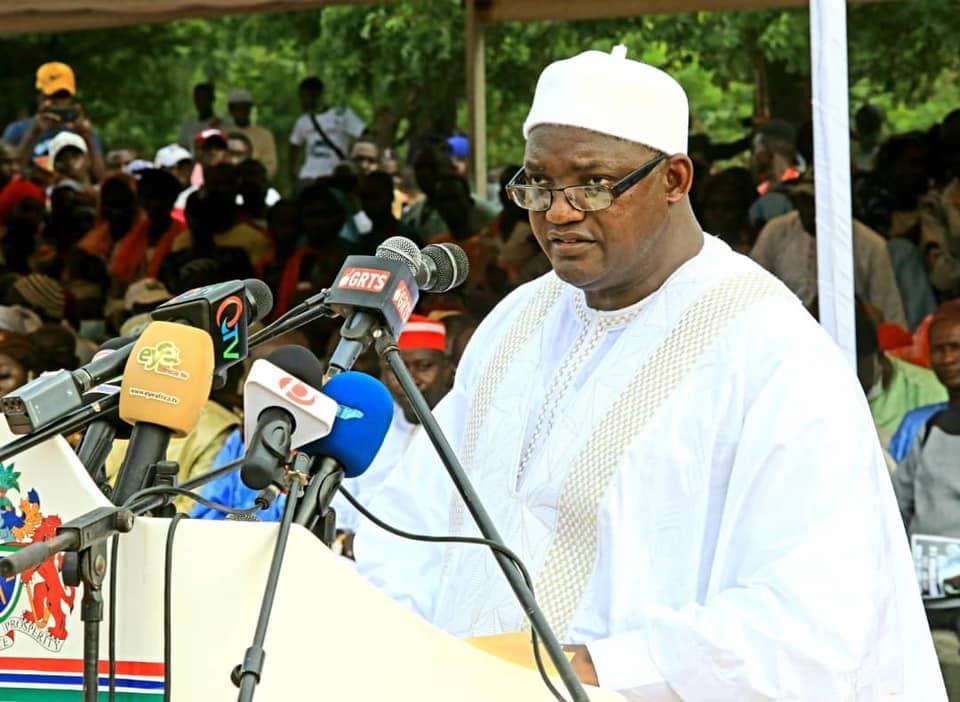
However, they all have suddenly become “Messiahs” of change. In some parts of the country and the Gambia Diaspora community is automatically an employment opportunity for some people, irrespective of competence, antecedence, or integrity; likewise, the prominent defectors from other political parties.
Essentially, some political parties do not possess any clear-cut and well-defined ideology. Instead, it seems, politics in the Gambia is akin to the “stomach infrastructure” ideology popularised by Jean/Francois Bayart, author of “The State in Africa: The Politics of the Belly”.
Nevertheless, there have been opposition members since our emergent democracy since the First and Second Republic. There have been people who have vociferously and silently been playing the role of the opposition in trying to ensure that the Gambia carves out a healthy democratic development.
In their quest to legitimise a viable opposition, some unsung heroes have died and lost everything along the way, believing in their cause. They have lost an arm and a leg but remained steadfast and dogged in the opposition movement.
Some have resisted tantalising overtures and juicy appointments of sitting administrations, believing instead in a formidable opposition. These are the genuine opposition members who gave victory to incumbent President Adama Barrow in 2016 with their time, efforts, sweat, blood, and lives, not some now masquerading as apostles of change.
These people were the ones who initially painstakingly built this “Barrow brand” most people are now clamoring for and sadly exploiting.
President-elect Adama Barrow should be wary of sheep in wolf’s clothing, screaming change, acting like proponents of change but are not necessarily agents of change.
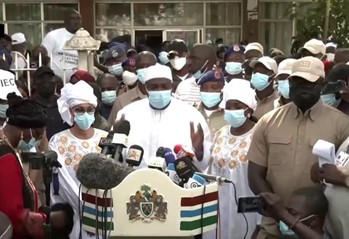
Perusing some of their self-aggrandisement motives, they exploited the popularity of President Barrow and the overwhelming cries of teeming Gambians for change at the helms of affairs.
However, most are opportunists and might reveal their true colors after officially being sworn in on January 19, 2022.
The presidential election is over, and challenging problems await President-elect Adama Barrow. He needs capable hands, proven and tested, with like-mind vision, capable of taking the Gambia to greater heights.
Regardless of political party affiliation, ethnicity, creed, and gender, he needs skilled individuals who believe in the Gambia project. He needs to act as a leader of the Gambia and Gambians, not a leader of a political party or particular region of the country.
He needs seasoned professionals and technocrats from far and wide, home and abroad, who are willing to build a brighter future for the teeming youths of the Gambia. President Adama Barrow’s journey began sometime in 2016 when he got elected into office.
It has taken him a dozen-plus five years to achieve his goal. He knows how arduous and pain-staking it was, eventually getting this elusive victory; credited to the teeming populace who believes in him.
It is now his turn to meet the aspirations of teeming Gambians looking up to him for the prophesied change they voted for. With great power come greater responsibilities. Whoever much is given, much is expected. There are great expectations on the shoulders of president Barrow.
The timber and caliber of the “politicians and technocrats” he appoints as his ministers would be scrutinised serially. Indeed, they would determine the direction his government is going to take. However, the fire of change is still burning.
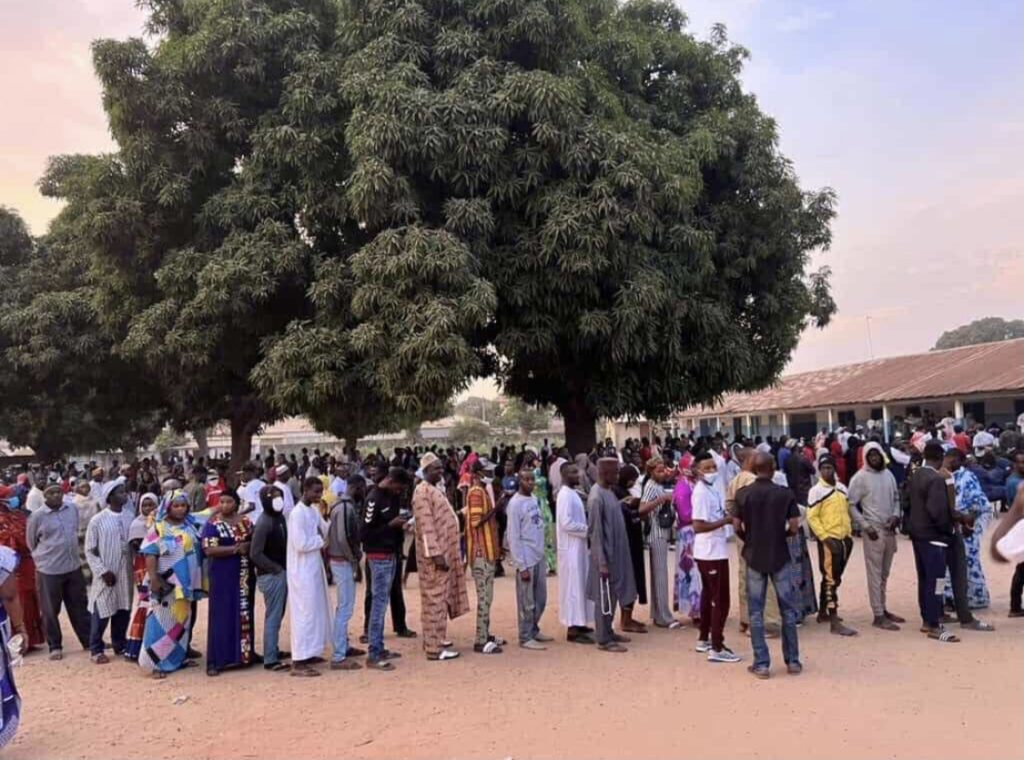
The expectation of hope is still alive within the populace. The passion with which Gambians came out en-masse to vote for an agent of change, whose integrity and honesty are parallel to none, is still blooming.
Surely, Gambians would not want to be disappointed. Surely, Gambians would not want the flame to be extinguished. Gambians would not want their hope to be dashed. Gambians would not want their efforts to be in vain.
The National Assembly elections are not too far away; however, before we get there, Gambians would like a bigger, better, and more extraordinary Gambia Anything less, and the President would surely face the music.
By Alagi Yorro Jallow











Recent Comments